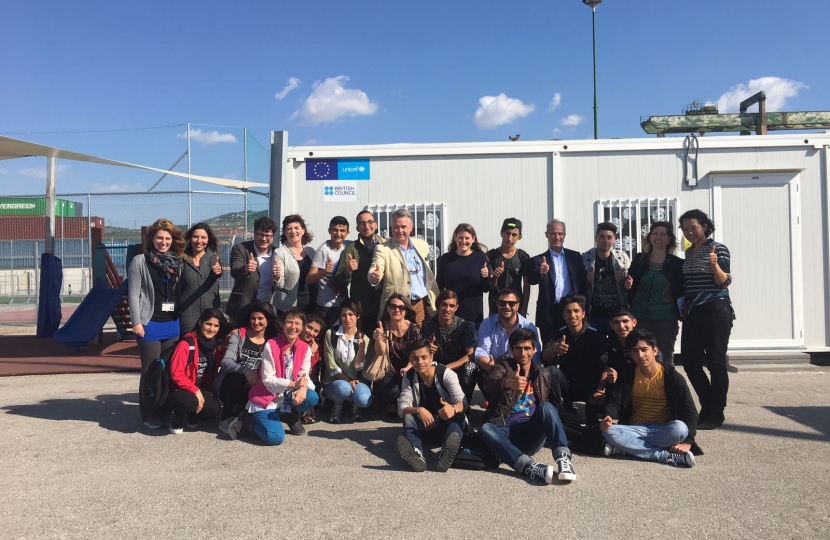
The Commons broke for the Easter recess last Thursday and I took up an invitation from the children’s charity UNICEF to visit their operations in Athens and see for myself the plight of child refugees fleeing danger. This is obviously an issue which has raised much concern in and outside of Parliament and the Home Affairs Select Committee, on which I sit, took evidence recently from some of the aid agencies on the impact of the so-called Dubs Amendment in bringing children to the UK.
With my colleague Nicky Morgan we met some of the estimated 20,500 refugees spread across Greece including 2,100 unaccompanied asylum seeking children. The daily arrivals of those making the perilous journeys in inadequate boats across the Aegean has slowed considerably from 2,000 a day at its height last year to fewer than 100 now but that still leaves a considerable challenge for the Greek authorities at a time of their own economic austerity.
We saw the good work being carried out by British officials out there processing the claims of those children with family links in the UK and the £40m we gave in aid right at the beginning of the crisis has been greatly appreciated. We joined a class to see the excellent work being done through the British Council at the main refugee camp in Athens at the port of Piraeus, where children from Syria, Iraq, Iran, Pakistan, Eritrea and beyond are being given an education in challenging circumstances whilst their families are in limbo. We met the British charity Safe Passage which is providing exactly that to children rescued from people smugglers.
Some great work is going on but the truth is that the UK and most European countries need to do more to help those children especially fleeing their homes for a wide variety of reasons, be it the conflict in Syria, threat of conscription into the discredited Syrian army or ethnic cleansing in Kurdish homelands. We met articulate teenage boys whose plight had been so desperate that their parents in Aleppo had entrusted them into the hands of ruthless people smugglers in the hope of reaching safety in Europe. It is difficult to imagine yourself in their position.
From arriving as a refugee to securing safe haven in Germany, Sweden or the UK it is taking well over a year and that is for the lucky ones. We need to speed up the process and we need to find secure homes for those who really have no alternative and no way back. The UK can pride itself of the generosity of what we have given so far but this problem is not going away any time soon and we all have to be prepared to do more. These children will not get their childhood back again.
